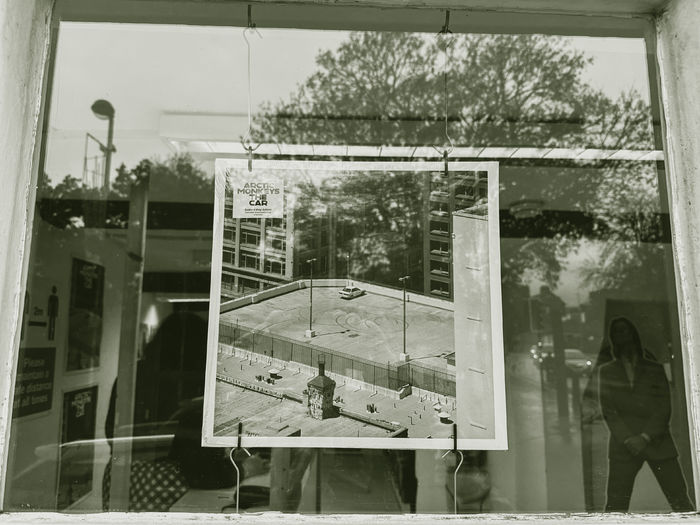When it it comes to edgy music socs, there’s no alternative
Alexander Brian chats to Amelia Quince about gatekeeping, streaming and the Arctic Monkeys

A Saturday in half-term was perhaps not the best time to interview head of Alternative Music Society, Amelia Quince. Squashed into a corner of Café Nero after a good fifteen minutes of wandering from café to café, I ask Amelia what probably sounded like a stupid question: what actually counts as Alternative music? Amelia informs me that there is no easy definition. Indeed, the society encompasses everything from jazz and classical to indie rock — essentially anything that you wouldn’t hear at your average Rumboogie.
Nevertheless, Amelia is keen to demonstrate that there are no rules when it comes to Alternative music: “people might like a bit of Ed Sheeran on the side and that’s fine.” Whilst “it’s very much the culture to be like, ‘I listen to this really niche band and I’m so cool’”, that’s not what Alternative Music Society is about. “Music is supposed to be about uniting people and letting them listen to what they love,” Amelia explains, “It shouldn’t be so divisive.”
“If Radio One decided to play metal all the time, maybe that would become popular music”
One album that has certainly proved divisive among the alternative community is Arctic Monkeys’ Tranquillity Base Hotel and Casino. For Amelia, one of the chief problems facing major artists is the expectations of their fans. “They’re no longer a bunch of 18-year-olds from Sheffield,” Amelia says of the Arctic Monkeys, “they’ve grown up and their style has changed.” Despite arguing that smaller artists are freer to experiment with their style, she concedes that “when you’re big, it doesn’t matter what you do, you’ll always sell out your gigs.”
For Amelia, pop owes much of its popularity to the platform that it is given: “if Radio One decided to play metal all the time, maybe that would become popular music.” It’s also, she adds, about what you’re seeking from music. Whilst some are prepared to listen to whatever is on the radio, others care more deeply about lyrics and emotions. Not that popular artists are necessarily worse. As Amelia notes, that would mean none of your favourite bands could ever make it.
“Sometimes I walk out the door looking like Legally Blonde. That doesn’t mean I’m not indie anymore”
Pop and alternative, she concedes, “are not as separate as people like to think.” For one, there is a crossover in songwriters. Jack White, for instance, contributed to Beyoncé’s Lemonade. Similarly, Amelia claims that The Weeknd’s heavy basslines and rock-song structures prove that Alternative music influences Pop.
“I never want us to be a judgemental society,” she explains, noting times that students have approached her seeking approval for their playlists, “somebody can love Taylor Swift and My Chemical Romance.” Nevertheless, she admits that a particular style surrounds alternative music. “Leather jackets, Docs, fishnets…” she laughs, “but sometimes I walk out the door looking like Legally Blonde. That doesn’t mean I’m not indie anymore.”
Meeting alternative music fans proved an amazing experience for Amelia after attending a school where no-one shared her tastes. “You’ll always get people within a community that like telling others they don’t belong,” she argues, “but when you actually get to know the community, it’s not like that at all.”
A grave problem currently facing independent artists is the impact of streaming on revenue. Whilst conceding that “streaming has been brilliant for exposure”, Amelia stresses that Spotify pays musicians as little as $00.3 - $00.5 per stream. “When I was younger,” she explains, “I’d buy a CD around once a month and it would cost maybe a tenner.” Although this amounted to less music, the artists received a fairer share of the profits. Therefore, Amelia argues that companies must do more to support musicians. Until then, Amelia recommends purchasing physical records and merch, attending live shows and spreading the word about emerging artists.
But what does she foresee for the future of alternative music? According to Amelia, the era of summery indie pop epitomised by Blossoms and Two Door Cinema Club is coming to an end. “People are having their emo phases again,” she claims, citing the recent return of Paramore, Blink182 and MCR. Why does she think this is? “There’s something quite therapeutic about having someone scream in your ear,” she laughs.
Alternative Music Society might be one of the smaller music societies at Cambridge but its community spirit certainly outweighs its size. By prioritising chill socials over impersonal club nights, the society offers a space to meet like-minded people. Its loose definition of the genre makes the society more inclusive and helps open-minded fans discover new styles. Whether you look like Legally Blonde or Heather Baron-Gracie, you need not be deterred from attending Alternative Music Society.
 News / Uni Scout and Guide Club affirms trans inclusion 12 December 2025
News / Uni Scout and Guide Club affirms trans inclusion 12 December 2025 News / Pembroke to convert listed office building into accom9 December 2025
News / Pembroke to convert listed office building into accom9 December 2025 Features / Searching for community in queer Cambridge10 December 2025
Features / Searching for community in queer Cambridge10 December 2025 News / Uni redundancy consultation ‘falls short of legal duties’, unions say6 December 2025
News / Uni redundancy consultation ‘falls short of legal duties’, unions say6 December 2025 News / Gov declares £31m bus investment for Cambridge8 December 2025
News / Gov declares £31m bus investment for Cambridge8 December 2025









